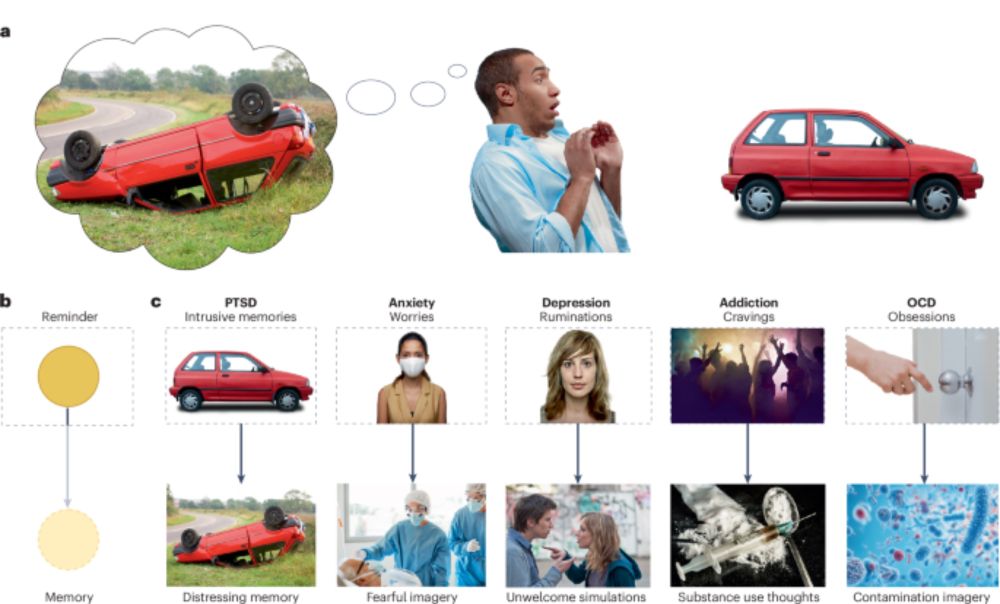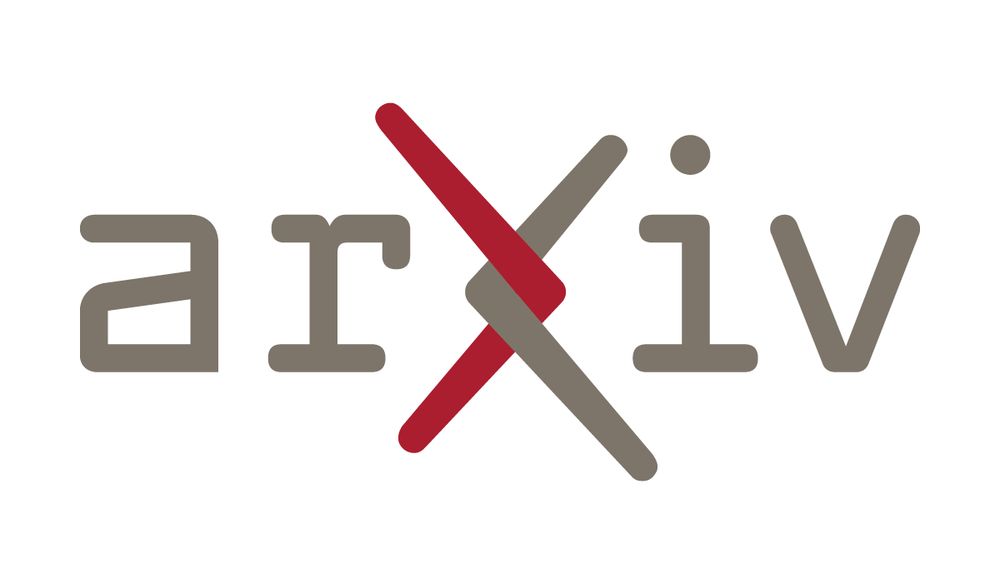Active inference - LLM - Reinforcement learning - Bayesian modelling | Creating a neural network library for predictive coding.

Curious about new interplays between neural networks and Bayesian modelling? Check out our latest preprint on dynamic predictive coding networks 👇
Paper: arxiv.org/abs/2410.09206
Code: github.com/ilabcode/pyhgf
www.nature.com/articles/s4...

www.nature.com/articles/s4...
Algorithmic Primitives and Compositional Geometry of Reasoning in Language Models
www.arxiv.org/pdf/2510.15987
🧵1/n

Algorithmic Primitives and Compositional Geometry of Reasoning in Language Models
www.arxiv.org/pdf/2510.15987
🧵1/n
📄 arxiv.org/abs/2510.14086 1/

📄 arxiv.org/abs/2510.14086 1/

led by Robin Vloeberghs with @anne-urai.bsky.social Scott Linderman
Paper: desenderlab.com/wp-content/u... Thread ↓↓↓
#PsychSciSky #Neuroscience #Neuroskyence
led by Robin Vloeberghs with @anne-urai.bsky.social Scott Linderman
Paper: desenderlab.com/wp-content/u... Thread ↓↓↓
#PsychSciSky #Neuroscience #Neuroskyence
@akjagadish.bsky.social @marvinmathony.bsky.social @ericschulz.bsky.social & Tobi Ludwig
arxiv.org/abs/2502.00879

@akjagadish.bsky.social @marvinmathony.bsky.social @ericschulz.bsky.social & Tobi Ludwig
arxiv.org/abs/2502.00879
GPs are super interesting, but it’s not easy to wrap your head around them at first 🤔
This is a medium level (more intuition than math) introduction to GPs for time series.
getrecast.com/gaussian-pro...

GPs are super interesting, but it’s not easy to wrap your head around them at first 🤔
This is a medium level (more intuition than math) introduction to GPs for time series.
getrecast.com/gaussian-pro...

I will add anyone who uses computational models to adress questions in psychiatry research. :)
go.bsky.app/5PTy9Zj
I will add anyone who uses computational models to adress questions in psychiatry research. :)
go.bsky.app/5PTy9Zj
authors.elsevier.com/a/1lV174sIRv...
Here’s a quick 🧵(1/n)
authors.elsevier.com/a/1lV174sIRv...
Here’s a quick 🧵(1/n)
osf.io/preprints/ps...
osf.io/preprints/ps...
Humans are the ultimate cooperators. We coordinate on a scale and scope no other species (nor AI) can match. What makes this possible? 🧵
www.pnas.org/doi/10.1073/...
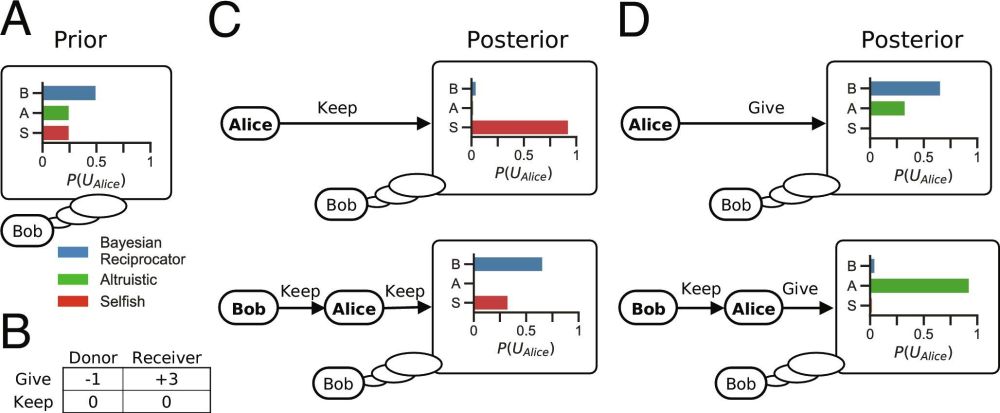
Humans are the ultimate cooperators. We coordinate on a scale and scope no other species (nor AI) can match. What makes this possible? 🧵
www.pnas.org/doi/10.1073/...
pypi.org/project/memo...
and
osf.io/preprints/ps...
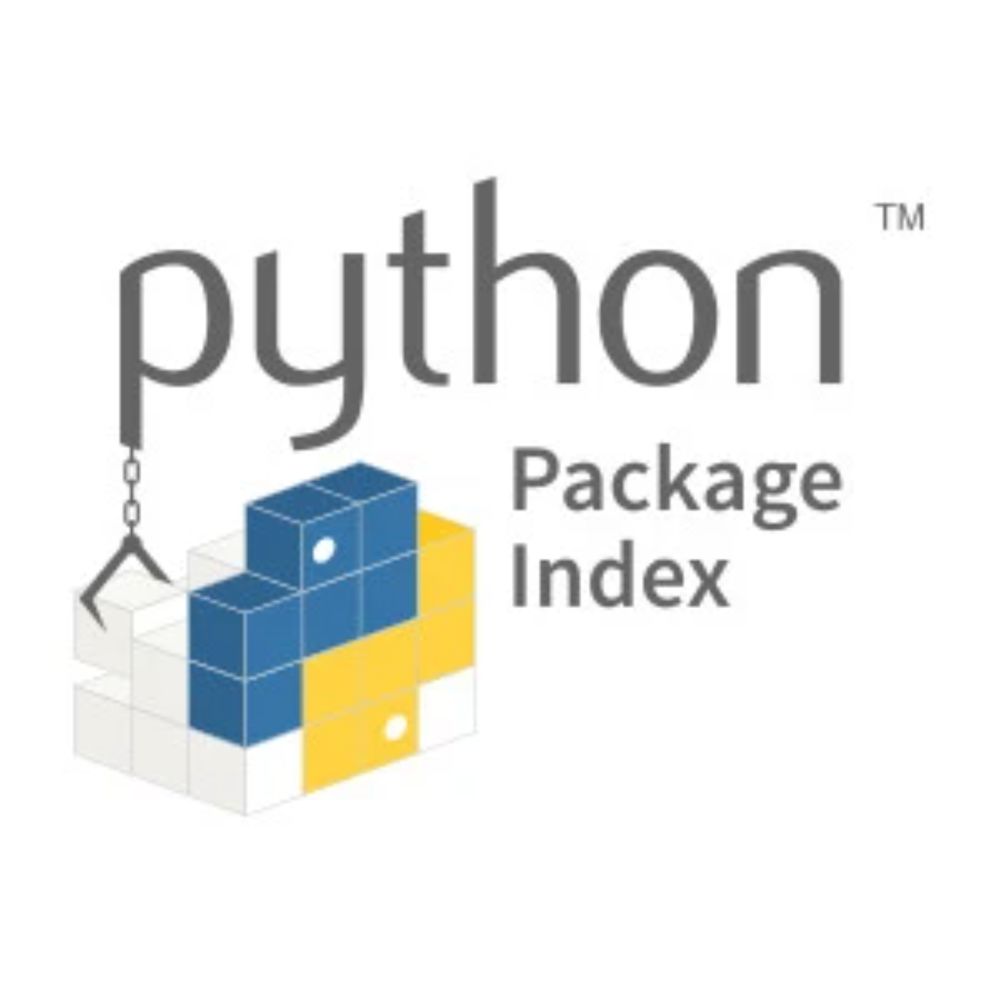
pypi.org/project/memo...
and
osf.io/preprints/ps...
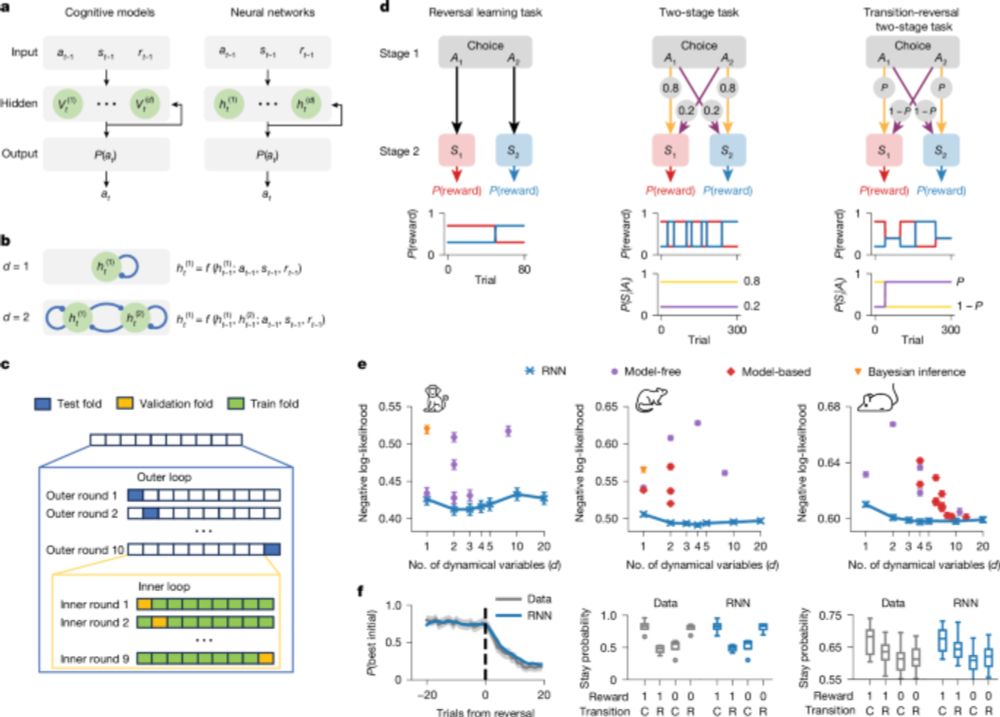
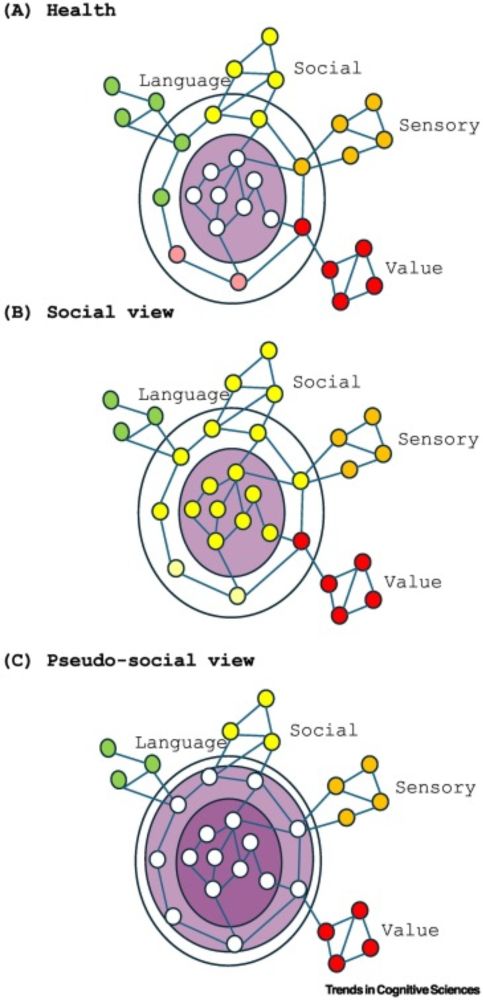
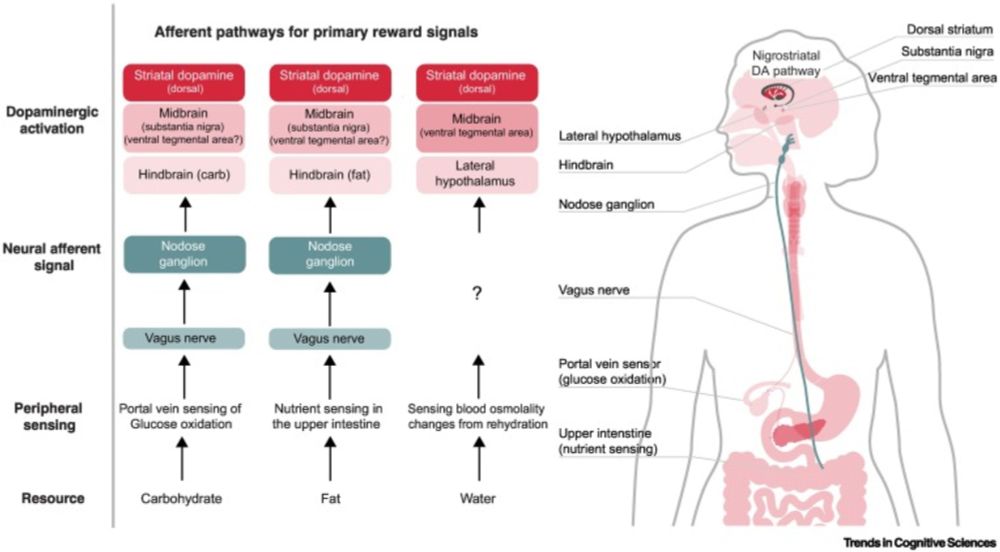
If you are human, you fall asleep at least once a day! What happens in your mind then?
Scientists know actually very little about this private moment.
We propose a 20-min survey to get as much data as possible!
Here is the link:
redcap.link/DriftingMinds
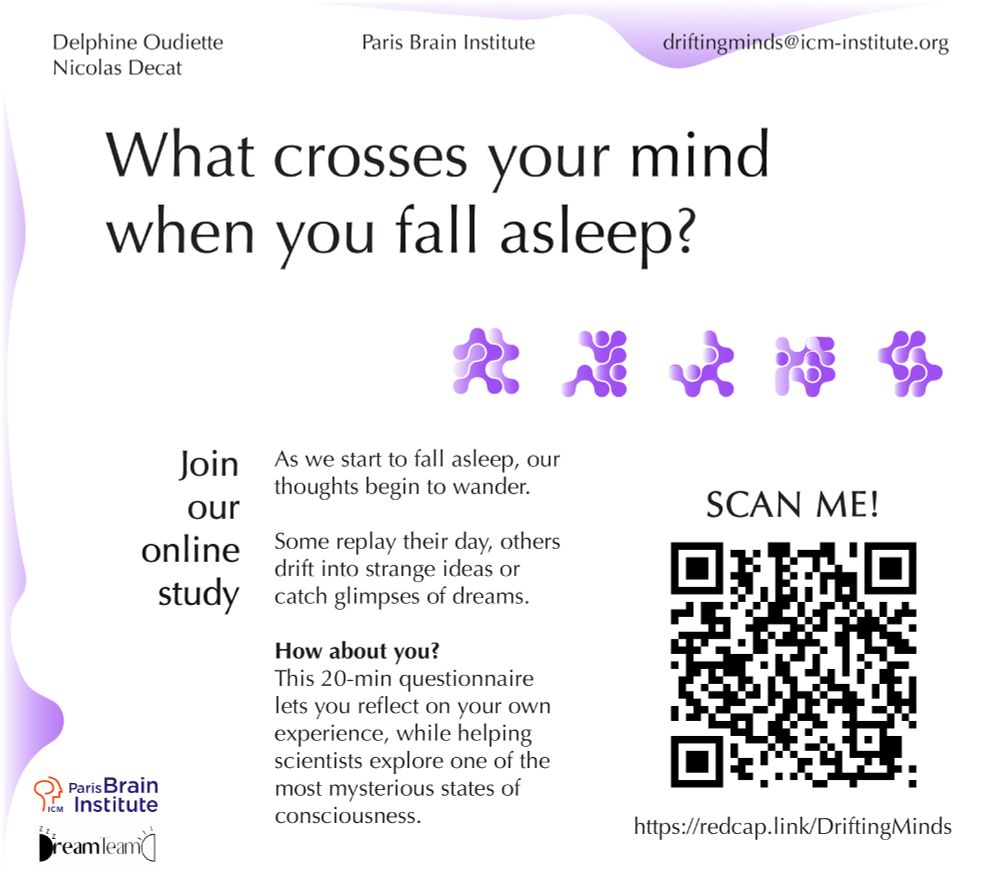
If you are human, you fall asleep at least once a day! What happens in your mind then?
Scientists know actually very little about this private moment.
We propose a 20-min survey to get as much data as possible!
Here is the link:
redcap.link/DriftingMinds
ml-site.cdn-apple.com/papers/the-i...
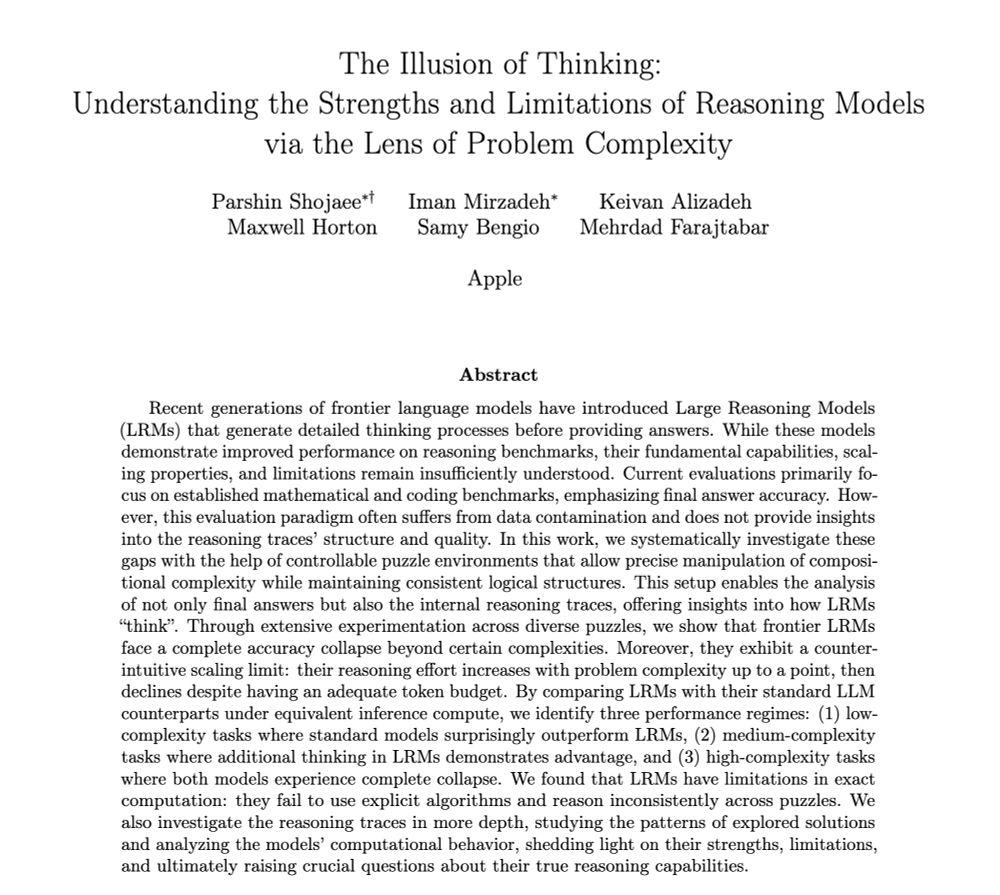
ml-site.cdn-apple.com/papers/the-i...
"Metacognitive sensitivity: The key to calibrating trust and optimal decision-making with AI"
academic.oup.com/pnasnexus/ar...
With co-authors Tianyu Zhou and Eric Du 1/
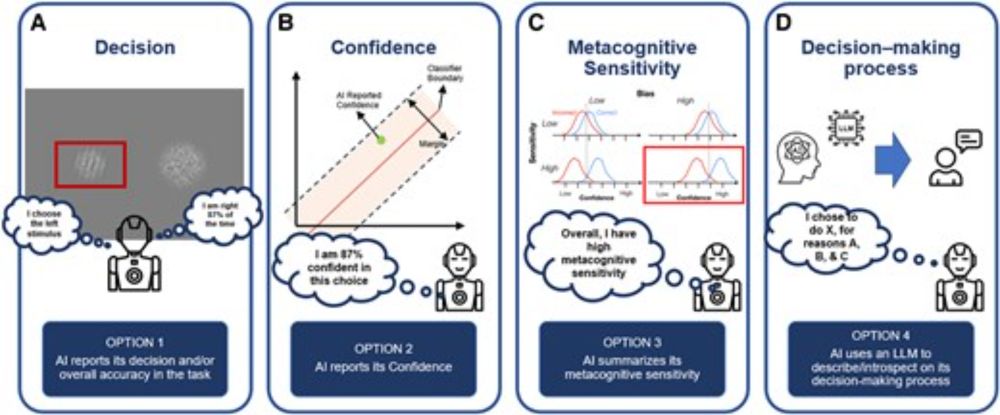
"Metacognitive sensitivity: The key to calibrating trust and optimal decision-making with AI"
academic.oup.com/pnasnexus/ar...
With co-authors Tianyu Zhou and Eric Du 1/
Bayesian models can learn rapidly. Neural networks can handle messy, naturalistic data. How can we combine these strengths?
Our answer: Use meta-learning to distill Bayesian priors into a neural network!
www.nature.com/articles/s41...
1/n
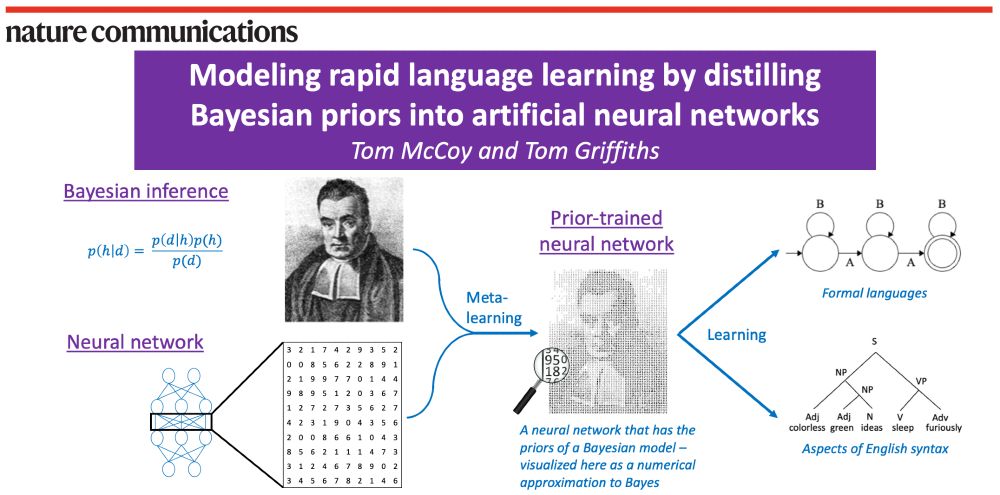
Bayesian models can learn rapidly. Neural networks can handle messy, naturalistic data. How can we combine these strengths?
Our answer: Use meta-learning to distill Bayesian priors into a neural network!
www.nature.com/articles/s41...
1/n
